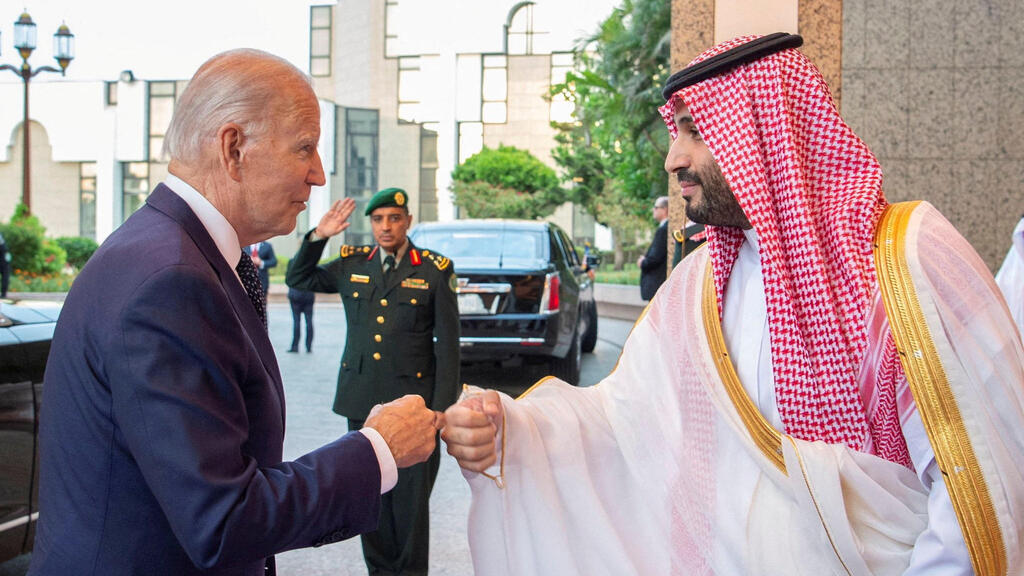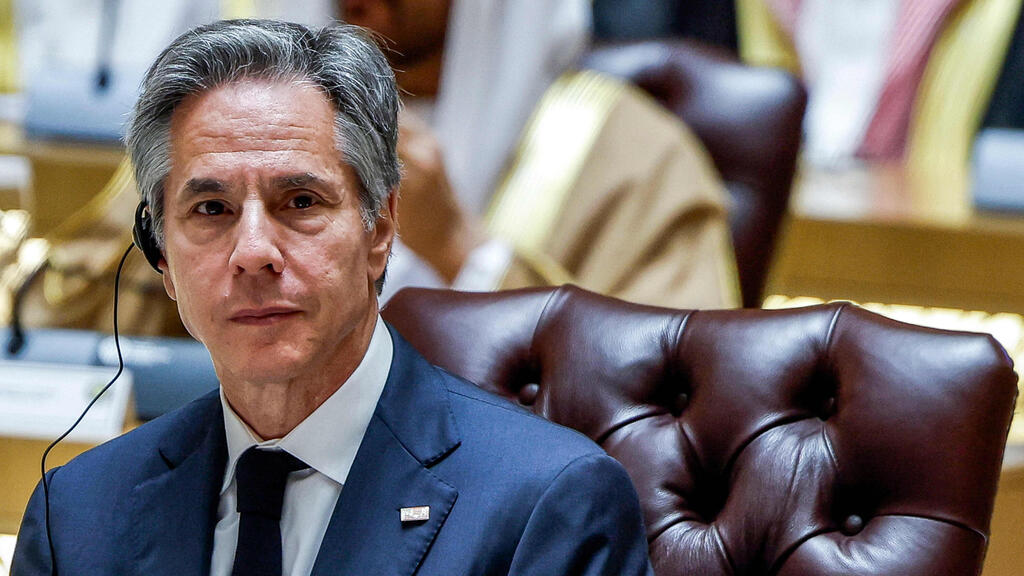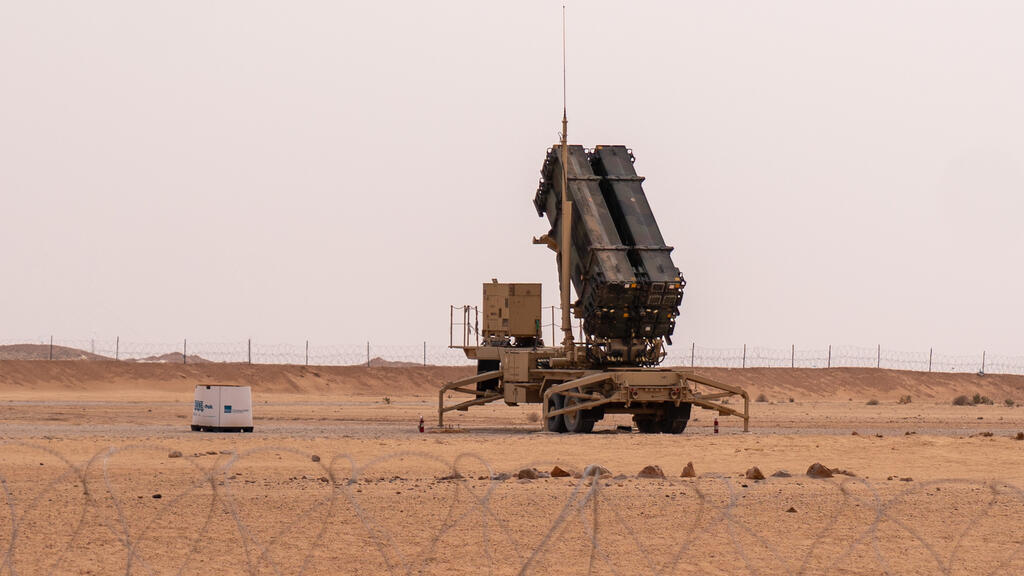U.S. Secretary of State Anthony Blinken, who is scheduled to arrive later on Monday for another visit to Israel and to the Middle East, will hold talks in the region dealing mainly with efforts to promote a hostage deal. In the background, Washington hopes that a deal that will bring an end to the fighting in the Gaza Strip will also promote a chain of other historic moves - ones that could change the face of the Middle East.
The Wall Street Journal published new details overnight between Sunday and Monday about the efforts to reach a normalization agreement between Saudi Arabia and Israel, and although it described the chances of these efforts as low (or more specifically a "long-shot"), it reported that the deal is actually still on the table. According to the report, as part of the attempt to encourage such a normalization agreement, the U.S. administration is getting closer to completing a defense alliance with Riyadh.
3 View gallery


President Joe Biden still wants to broker a normalization agreement between Saudi Arabi and Israel
(Photo: Reuters)
Although this is a separate agreement, in order for it to receive legal authorization, it needs to pass a vote with a two-thirds majority in the U.S. Senate, and some of the lawmakers there are not expected to vote for it if it is not linked to a Saudi commitment to normalize relations with Israel.
However, in order to successfully complete this diplomatic effort, and as has been reported many times in the past, Israel will be required to commit to the establishment of a Palestinian state and, more immediately, to the end of the war in Gaza; and these are commitments that are now difficult to see happening . But in the U.S. they do not stop working to promote the move, and present it as critical for Israel's long-term security and as a "historic opportunity" for its integration into the Arab world and the Muslim world.
The completion of what commentators are calling a "megadeal" will also be a significant geopolitical achievement for the U.S., against the backdrop of the threat from Iran and the strategic rivalry with China, which is trying to strengthen its influence in regions around the world including the Middle East.
Jonathan Panikoff, a former senior U.S. intelligence official now at the Atlantic Council think tank, explained that the transformation of security, economic and technological ties between Saudi Arabia and the United States will “disrupt efforts by Beijing to make progress in the region and find additional allies willing to support its efforts to shift away from the U.S.-led liberal international order.”
Completing the deal will, of course, also be a tremendous political achievement ahead of the presidential elections in November.
American and Saudi officials who spoke to the Wall Street Journal said that the defense alliance with Riyadh was almost completed last month, during talks between U.S. National Security Advisor Jake Sullivan and other American officials, and Saudi Crown Prince Mohammed bin Salman. An agreement in principle, it was reported, was reached on most of the articles of the defense alliance.
The alliance will be loosely based on the mutual defense alliance between the U.S. and Japan, which was signed in 1960. According to the sources who spoke with the Wall Street Journal, in exchange for the U.S. commitment to help defend Saudi Arabia if it were attacked, it would grant Washington access to Saudi territory and airspace to protect U.S. interests and its regional allies. The deal, which will be called the "Strategic Alliance Agreement," will prohibit the establishment of Chinese bases in the kingdom, and will prevent Beijing from pursuing security cooperation with Riyadh.
According to the report, the expected U.S. aid to Saudi Arabia in the civil nuclear field will not be a direct part of the agreement, but will be part of the overall deal. It was also reported that the Biden administration is simultaneously formulating a defense agreement that can only be approved through a presidential decree, and this is expected to include an increase in arms sales to Saudi Arabia and the expansion of intelligence cooperation and strategic planning with Riyadh, in the face of threats such as that posed by Iran.
3 View gallery


U.S. Secretary of State Antony Blinken is back in the region for the 8th time since October 7
(צילום: Evelyn Hockstein / POOL / AFP)
A defense agreement with Saudi Arabia would be historic, and it would become the first Arab country - and the first authoritarian country - to sign an official defense alliance with the U.S. Although several other Arab countries enjoy the status of a "major non-NATO ally" - a status that gives them U.S. security assistance - these are not official and binding agreements as far as Washington is concerned. For Saudi Arabia, an official alliance with the U.S. will remove the doubts in the kingdom regarding the American commitment to its security. The hope in the U.S. is that eventually the official defense alliance will also lead to a Saudi-Israeli coalition against Iran.
But in order to complete the megadeal that will include normalization with Israel, Jerusalem will be required to agree to an "irreversible" path toward a two-state solution, something that the current government strongly opposes. And, more immediately, in order to advance the historic move, the U.S. needs a cease-fire in Gaza. Although, according to the report, this is not an official demand within the normalization efforts, U.S. and Saudi officials made it clear that in practice the overall deal cannot be realized without a cease-fire.
This is exactly what Blinken hopes to promote during his visit to the region. Before his arrival, he emphasized once again that the only obstacle to the kidnapping deal is Hamas, and not Israel.
"The only thing preventing a cease-fire is Hamas. It's time for them to accept the deal," Blinken said of the Israeli offer revealed by President Joe Biden a little over a week ago, although it is also not clear whether Prime Minister Benjamin Netanyahu will agree to the deal, since his coalition partners Itamar Ben-Gvir and Bezalel Smotrich have promised to dismantle his government if he approves it.


